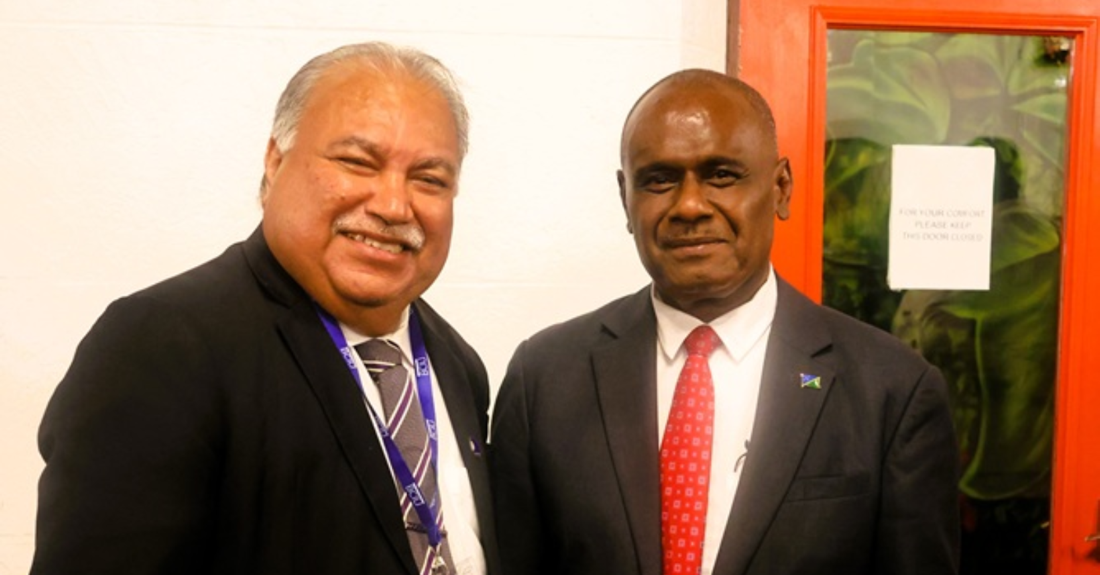BY CHRIS ALEX
The Bethesda Disability Training and Support Centre (DTSC), a special school in the Solomon Islands dedicated to educating and supporting children with disabilities, has made a strong appeal to the government and key education stakeholders to address long-standing inequalities in funding, training, and infrastructure for special education.
Bethesda DTSC provides critical services to students with physical, intellectual, and developmental challenges.
Despite their essential role in promoting inclusiveness and empowerment, special schools like Bethesda face significant disparities in government support compared to formal schools.
While formal schools benefit from larger student populations and greater autonomy in income-generating programmes, special schools often rely heavily on teachers to take on multiple roles, including fundraising and gardening.
Formal schools also receive significantly higher grants from the Ministry of Education and Human Resource Development (MEHRD), due to a funding model that prioritises student numbers and perceived capacity over actual need.
“Special schools are doing more with less. Our students face greater challenges, and our teachers carry heavier responsibilities with far fewer resources,” said Mr Baddley Kimmy Keretau, Deputy Principal of Bethesda DTSC.
He raised this during a recent Solomon Islands National Teachers Association (SINTA) Annual General Meeting at Honiara High School Hall.
Keretau expressed concern that disability education was overlooked during the AGM discussions. He called on MEHRD to:
-Recognize the unique contributions of special education teachers
-Clearly categorize their professional roles within the national education system
-Include special schools in national education policy discussions and advocacy
He thanked both SINTA and the Government (GNUT) for acknowledging his concerns and incorporating disability-related issues into their seven-point advocacy agenda.
Keretau also highlighted the lack of training and professional development opportunities for special education teachers. Unlike their counterparts in formal schools, special school teachers have limited access to government-funded scholarships and tertiary education programs. Currently, there are no special education programs offered by the Solomon Islands National University (SINU) or the University of the South Pacific (USP), leaving special educators under-supported and under-qualified despite the complexity of their roles.
In addition to education concerns, the health and safety of students in special schools remain at risk. Many students lack access to necessary health services, medications, and assistive devices. Health workers often lack the training to address disability-specific needs, leading to mistreatment or neglect.
Bethesda DTSC recommends that government health teams conduct annual visits to special schools to provide:
-General health check-ups
-Health education sessions
-Distribution of medications
-Assessments for assistive devices
“Annual health visits can prevent secondary complications and ensure the well-being of our students,” Keretau emphasized.
The physical environment of special schools is also a pressing concern. At Bethesda DTSC, dormitories are often threatened by flooding during the rainy season due to poor location and infrastructure. Emergency evacuations to school halls are becoming a frequent occurrence, highlighting the urgent need for safer, more accessible facilities.
Bethesda DTSC calls on MEHRD, SINTA, GNUT, and all relevant stakeholders to urgently:
-Review and reform the education funding model to ensure fairness and equity
-Support inclusive policy development that reflects the needs of students with disabilities
-Invest in infrastructure upgrades and staff training for special schools
“Let us move forward together, recognizing the unique needs and contributions of special schools, their students, and the passionate teachers who serve them,” Keretau urged.
For feedback, contact:[email protected]



